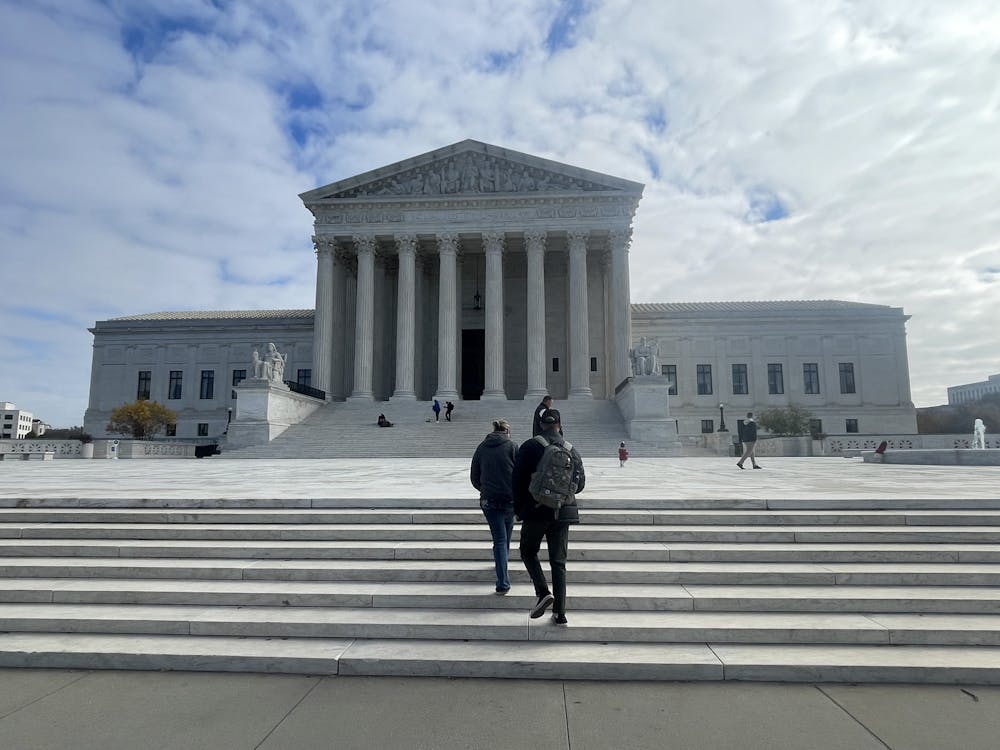After a new term began on Oct. 3, and with six conservative justices, the Supreme Court is set to rule on cases involving elections, the environment, LGBTQ rights and affirmative action.
The overturning of Roe v. Wade at the end of the last session has caused an increase in interest and criticisms of the Supreme Court’s proceedings.
Sackett v. Environmental Protection Agency
Sackett v. Environmental Protection Agency involves a couple that wants to fill in their residential lot near an Idaho lake. The EPA designated the area of their property a protected wetland area under the Clean Water Act, which regulates the amount of pollutants that is allowed in U.S. waters, according to the EPA.
“What’s at stake with Sackett is the geographic scope of regulation to protect wetlands and tributary waters,” Robert Fischman, IU professor of public and environmental affairs, said. “If the Supreme Court shrinks that jurisdiction, then state jurisdiction shrinks as well.”
Related: [Indiana Democrats make promises for women’s rights during their statewide tour]
Wetlands are an essential part of the environment because they improve water quality, store floodwater and maintain surface water flow during droughts, according to the EPA.
“What Sackett wants to do is destroy wetlands,” Fischman said.
Moore v. Harper
The Moore v. Harper case will examine whether state judiciaries can make decisions on how elections are conducted, Luis Fuentes-Rohwer, IU professor of law, said.
The U.S. Supreme Court will decide if the North Carolina Supreme Court has the right to strike down a controversial electoral map that heavily favors republicans, according to Brennan Center for Justice.
The argument for giving state legislatures full control over how elections are conducted comes from Article 1, Section 4, of the Constitution that says state legislatures can determine the time, place and manner of holding elections for senators and representatives
“It is pretty clear that the founding generation had no interest in giving state legislatures sole authority over federal elections,” Fuentes-Rohwer said.
Students For Fair Admissions v. President and Fellows of Harvard and Students for Fair Admissions V. University of North Carolina
The court heard oral arguments Oct. 31 on two cases focusing on affirmative action in college admissions. The conservative wing of the court questioned the end point of affirmative action, according to transcripts.
“I just don’t see how you can say that the program will ever end,” Chief Justice John Roberts said during oral arguments.
Justice Clarence Thomas asked lawyers in favor of affirmative action at UNC if there was any benefit to having racial diversity in education.
“I may be tone deaf when it comes to all these other things that happen on campus, about feeling good and all that,” Thomas said during oral arguments, “I'm really interested in a simple thing. What benefits academically are there to your definition or the diversity that you are asserting?”
Related: [Free UBER rides to the polls available for Monroe County voters]
According to the Legal Information Institute at Cornell Law School, affirmative action is meant to remedy the effects of discrimination based on race, color, creed and national origin.
“They won’t be able to consider a student's race or ethnicity,” Steve Sanders, IU professor of law, said, “That seems odd that we would single out that one thing.”
303 Creative LLC v. Elenis
303 Creative LLC v. Elenis will examine the rights of a web designer who objected to providing services for a same-sex couple. She believes that being forced to follow anti-discrimination laws that protect LGBTQ community members is a form of compelled speech enforced by the government.
303 Creative LLC is arguing the First Amendment protects business owners from working with LGBTQ people if it goes against their beliefs, Sanders said.
Colorado, where 303 Creative LLC is located, currently has a law preventing discrimination based on sexual orientation.
“With this conservative court, 303 Creative is likely to find a receptive audience,” Sanders said.




